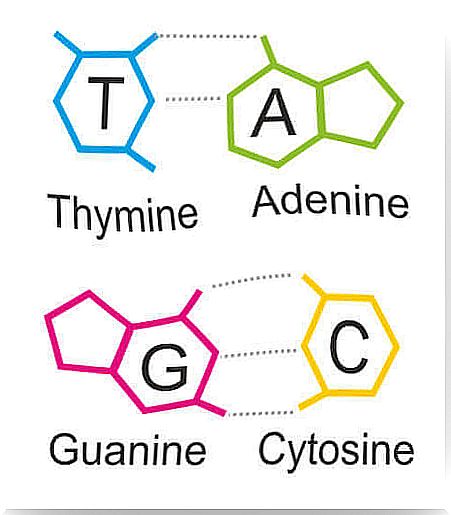Purines – Everything You Need To Know About Them

Most of us are familiar with the existence of chemicals in the body, such as purines. They are often mentioned in connection with the diseases they lead to. Few, however, know the real role of these compounds in our body.
Purines are an essential part of the group of deoxyribonucleic acid (DNA) elements. Let’s find out more about them in this article.
Purines are a group of naturally occurring chemical compounds which are transformed into uric acid as a result of metabolic changes. They can be found in many foods consumed every day, so it is practically impossible to completely exclude them from the diet.
Purine is the basis of two nitrogen bases that make up the nucleic acids (DNA and RNA) – guanine and adenine. That is why we find them in cells and in the food we eat, such as meat.
Moreover, they follow their own cycle of decay and elimination in our body. This process is critical because they form the uric acid known to us when they break down. If the processes do not go through successfully and the surpluses are not eliminated – for example, gout may occur.
There are two basic types in the purine group: adenine and guanine. In this article, we’ll explain what purines are for and what they mean in our body.
Purines – what exactly are they?
As already mentioned, purines are a family of molecules. They are chemical compounds that are part of DNA and other nucleic acids such as ribonucleic acid (RNA). In this family we find: adenine and guanine.

- Since they are part of DNA, it is logical that we will find them naturally in our body. Our organisms can produce them. But what’s more, some foods, such as meat and fish, are very high in purines.
- They take part in many processes of cellular metabolism, as well as in the synthesis of proteins. However, there are many disorders that alter the normal cycle of these substances. For example, when it comes to their elimination, uric acid pathologies such as gout appear.
However, gout is not the only serious purine-related disease, although it is the most common one. There are many disorders that affect their degradation, some of them much more serious than gout.
Purines and uric acid
Purines, broken down in our tissues, create uric acid. This degradation mainly occurs in the liver and small intestine. The amount of uric acid produced can vary depending on various factors.
Our diet usually plays the most important role in regulation . This is because food is one of the most important sources of purine. Almost all uric acid is excreted in the urine, although some is also excreted in the intestine.
When too much uric acid is produced or cannot be eliminated properly, it builds up in the body. In such a situation, urine accumulates in the tissues. Most often it happens in the joints, causing them to become inflamed. High levels of uric acid can also cause kidney problems.
The gout problem mainly affects the finger joint. It causes severe attacks of pain, but also swelling of the area and redness.
The importance of purines for the diet
As we mentioned, food is the main source of purine. This makes diet a critical factor in the development and control of uric acid diseases.
Of course, the ideal situation would be a balanced and healthy diet. Especially for people who have a predisposition to these diseases, caused by uric acid. Then it is especially important to keep an eye on our eating habits. So let’s get to know the foods rich in these compounds.
While the ideal is that we all have a balanced and healthy diet, it is especially important for people who are predisposed to suffer from these pathologies to control their food. Some of the purine-rich foods are:
- Any meat, beef, pork, game or poultry.
- Seafood such as lobster and clams.
- Liver, stomachs or kidneys of any animal.
- Fish such as smoked salmon or anchovies.
When there is a problem with purine metabolism, it is advisable to avoid these foods. In addition, it is important to drink plenty of fluids to increase uric acid elimination. It is also recommended to maintain a proper weight and avoid alcohol.
About 75% of uric acid should be excreted by the body in the urine. The remaining 25% goes to the digestive system, where it is broken down by bacteria in the intestines.
Summary
Regardless of all the recommendations that we proposed in this article – consultation and a visit to the doctor must take priority.
We emphasize that purines are an integral part of our lives, but they should be harmonized when it comes to their amount in our body. Otherwise, they can lead to diseases, including the aforementioned gout.
This condition occurs most often. It is accompanied by tremendous pain and joint problems. We should be vigilant if the first disturbing symptoms appear.
Increased levels of uric acid in the blood are known as hyperuricemia. Its excess is deposited in the form of microscopic crystals, incl. in the joints, which causes the development of many serious diseases, such as gout, as well as gout.
Moreover, hyperuricemia may occur in the course of acute renal failure, tumor lysis syndrome (after chemotherapy), Lesch-Nyhan syndrome and during treatment with some diuretic drugs.








